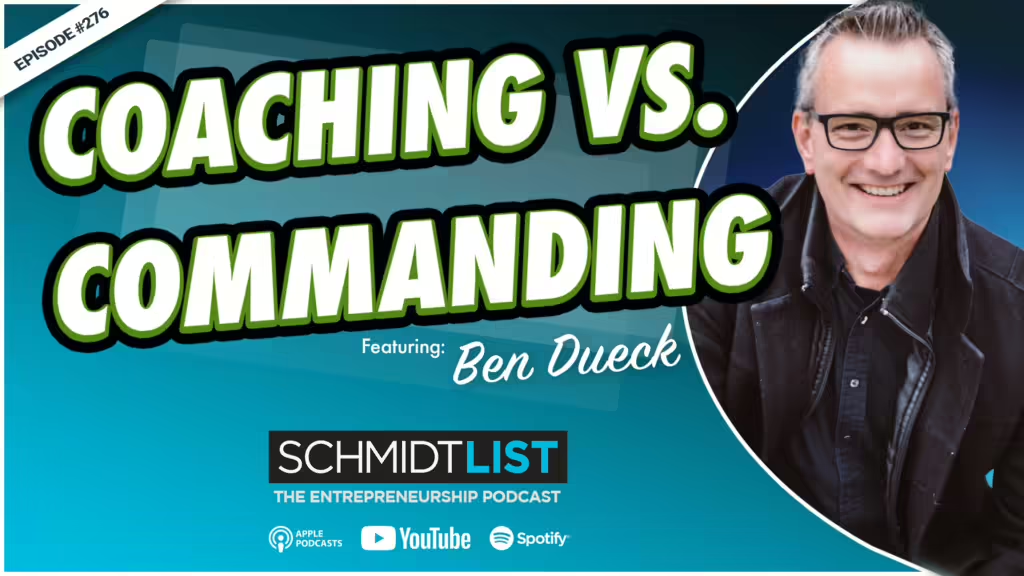Navigating Challenges, Embracing Technology, and Fostering Hope in Today’s Multi-generational Workforce
In a recent episode of the Schmidt List, host Kurt Schmidt interviewed Ben Dueck, a leadership development consultant who is passionate about helping leaders maximize their potential. The episode provided a wealth of insights into generational differences in leadership, adaptability’s importance, and self-care’s necessity for effective leadership. Let’s delve into these essential topics and explore how leaders can navigate the complexities of today’s multi-generational workforce.
Understanding Generational Differences in Leadership
One of the key themes discussed during the episode is the varied leadership styles and challenges faced by different age groups in the workplace. Ben Dueck highlighted the differences in loyalty, work-life balance, and work ethic across generations. Younger generations, for instance, tend to focus more on integrating life and purpose with work, emphasizing personal fulfillment.
Kurt Schmidt and Ben Dueck discussed how the impact of technology, social media, and cell phones has significantly influenced the younger generation’s brain chemistry and leadership styles. This digital evolution has created a need for leaders to adapt and balance flexibility and authority when managing diverse teams.
Adapting to Technological Changes
The rapid technological advancements and the pervasive presence of social media have reshaped how leaders interact with their teams. As Ben Dueck pointed out, regardless of age, leaders must understand their team members’ unique motivations, challenges, and communication styles. Gallup’s study of top-performing organizations underscores the importance of adapting leadership approaches to leverage individual strengths and foster a collaborative environment.
From Individual Contributors to Empowering Leaders
Transitioning from an individual contributor role to a leadership position requires a significant shift in mindset. Ben Dueck emphasized the need for new leaders to focus on empowering their team members rather than merely managing tasks. Unfortunately, many organizations lack intentional strategies for equipping and empowering new leaders, leaving them to navigate their new roles with minimal support.
During the conversation, Kurt Schmidt shared his observations on the scarcity of structured leadership training for newly promoted leaders. Ben Dueck advised new leaders to proactively seek development opportunities within their organizations, consider coaching, and explore relevant literature to enhance their leadership skills.
The Importance of Self-Care in Leadership
Effective leadership goes beyond managing teams; it also involves caring for oneself. Ben Dueck underscored the importance of proper nutrition, exercise, and adequate sleep to mitigate external stressors. Just as flight attendants advise passengers to wear their oxygen masks first, leaders must ensure their well-being before effectively leading others.
Kurt Schmidt drew a parallel between self-care and leadership, emphasizing the need for leaders to be aware of their own needs and stresses. By prioritizing self-care, leaders can create a positive and supportive team environment.
Hope-Filled Leadership
In today’s fast-paced and often divisive world, leaders must cultivate a sense of hope and optimism. Ben Dueck highlighted the importance of hope-filled leadership, where leaders inspire and uplift their teams through positive actions and attitudes. This type of leadership fosters a productive work environment and leaves a lasting legacy.
Leaders should aim to be remembered as beacons of hope in their organizations, promoting a culture of positivity and resilience. By developing the skill of instilling hope, leaders can motivate their teams to overcome challenges and achieve shared goals.
The Value of Coaching in Leadership
The conversation also touched upon the benefits of coaching in leadership roles. Ben Dueck advocated for a shift from commanding to coaching, where leaders ask questions rather than give directives. This method empowers team members and stimulates neural activity associated with problem-solving and critical thinking.
Kurt Schmidt shared an anecdote about seeking advice rather than feedback in a work situation. This simple shift in approach transformed his relationship with his boss and highlighted the importance of solicited advice. Leaders should seek permission before offering advice, ensuring it is welcomed and constructive.
Navigating Modern Challenges
Today’s leaders face numerous challenges, including divisiveness, mental health issues, technological changes, and uncertainty. Ben Dueck advised leaders to maintain a hopeful perspective when navigating these difficulties. Leaders can guide their teams through turbulent times and foster a supportive work environment by staying resilient and focused.
Conclusion
Ben Dueck’s insights on the Schmidt List podcast offer valuable guidance for leaders striving to bridge the generational divide in the workplace. By understanding generational differences, adapting to technological changes, prioritizing self-care, and fostering a hopeful outlook, leaders can inspire and empower their teams to succeed. As we move forward, let us embrace these principles and create a more inclusive future.
For more insights and to connect with Ben Dueck, visit his LinkedIn profile and explore his work at Cantera Leadership.
